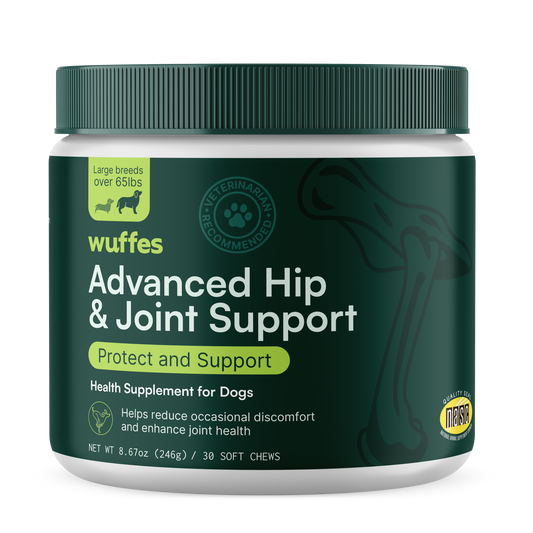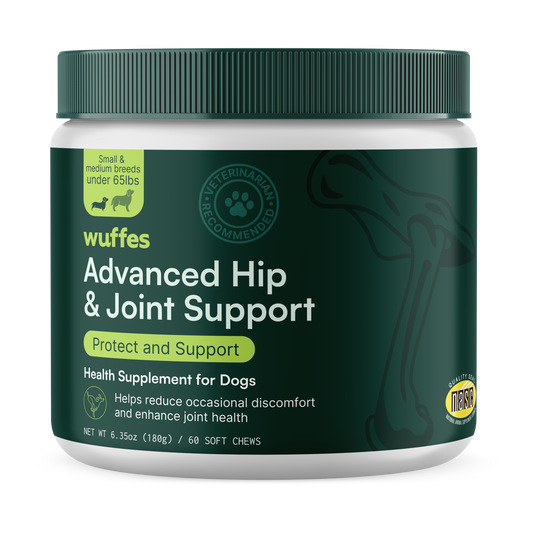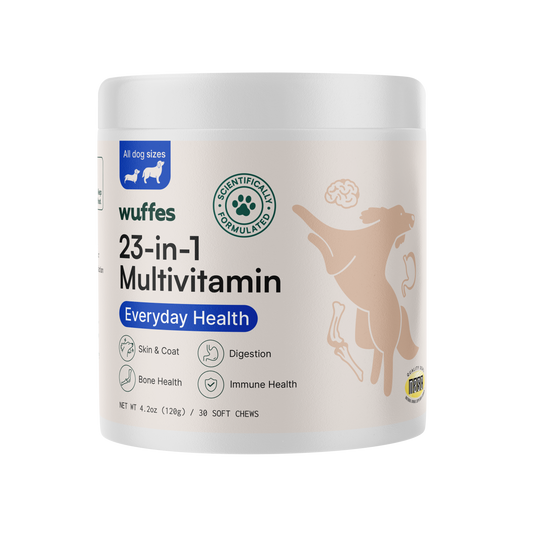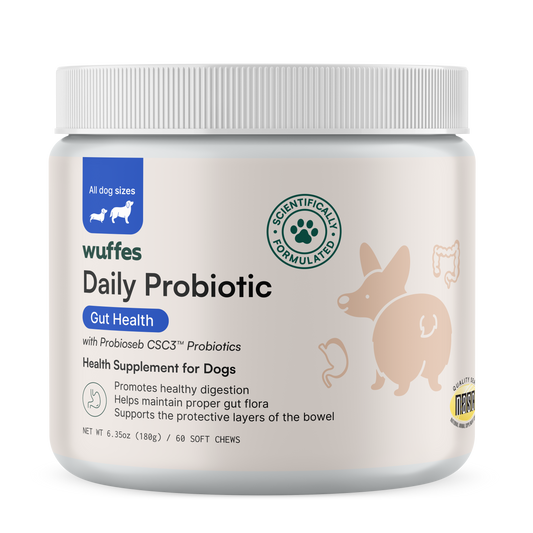As dog parents, we want nothing but the best for our furry companions. One important aspect of their health that deserves attention is joint health. Just like humans, dogs can experience joint issues, especially as they age. Fortunately, incorporating joint supplements into your pet's routine can make a significant difference.
When should you give your dog joint supplements?
Age Matters: Older dogs are generally more susceptible to joint problems, making it crucial to consider joint supplements as they age. If you notice your young dog limping or having difficulty climbing stairs, it may be time to think about joint support. Early intervention can be beneficial for developing joints.
Environment: If your dog lives in an environment with limited space for exercise, consult your vet about introducing joint supplements as early as 12 months. Proactive care can help mitigate potential issues.
Weight Considerations: Dogs carrying excess weight place additional strain on their joints, making supplementation important. A balanced diet and regular exercise are essential for maintaining a healthy weight and preventing joint problems.
What breeds are prone to developing joint problems?
Certain dog breeds are more prone to developing joint issues. Breeds like Golden Retrievers, Bloodhounds, Newfoundlands, Otterhounds, Pit Bulls, Chow Chows, Bernese Mountain Dogs, Labrador Retrievers, Great Danes, German Shepherds, Pugs, and Shih Tzus are particularly vulnerable. If your dog belongs to one of these breeds, consider starting joint supplements around the age of one, or even earlier based on your vet's advice.
Why should dogs take joint supplements?
Dogs age more rapidly than humans, leading to a natural decline in the production of essential proteins necessary for joint health. This can put them at risk for conditions like hip dysplasia and arthritis.
What do canine joint supplements do?
Taking care of your dog's joint health is crucial for their overall quality of life. If you're considering joint supplements, explore our Advanced Hip & Joint Support Chews for daily maintenance, or our Advanced Joint Liquid for more intensive care. Additionally, incorporating Wild Fish Oil into their diet can provide an extra boost of Omega-3s for joint nutrition.
For immediate support, our CBD Isolate Oil is an excellent option, while the Portable Laser Therapy device can provide supportive care for ongoing joint issues.
Before starting any supplements, it’s always best to consult with your veterinarian, especially if your dog has specific health conditions or dietary needs. With the right approach, you can help your dog maintain their mobility and enjoy a happy, active life.










